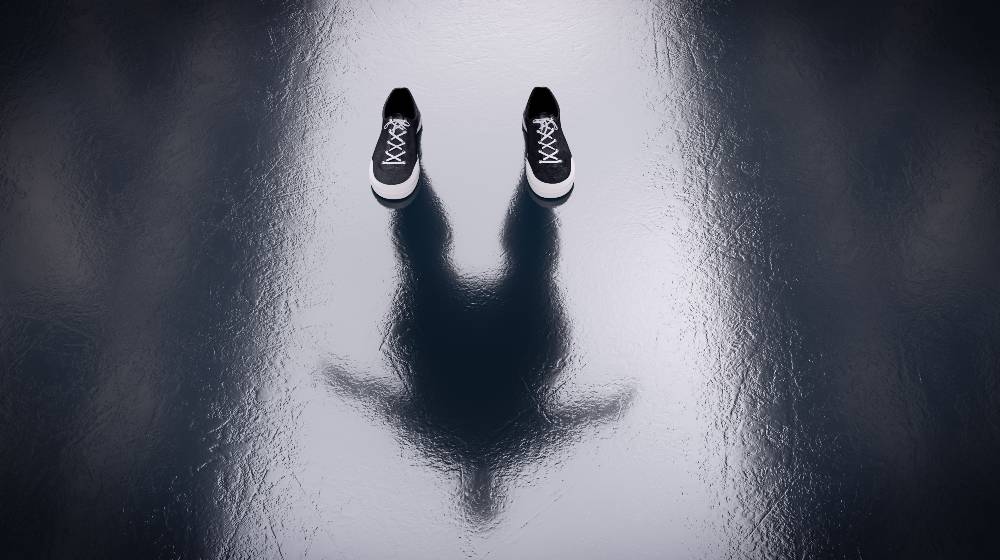Have you ever wondered what is meant by the statement, “You create your own reality”?
Some people feel empowered when they hear this statement. Others think it is ridiculous BS. Those who feel empowered by it sometimes lose their empathy and compassion. They may go around challenging people: “Why do you think you manifested this cancer you have?” making people who buy into that idea feel horrible about themselves.
RELATED: Exploring Your Career Path in the Financial Sector
What Does It Mean to “Create Your Own Reality”?
But there is a sane middle ground here. Let's take a deeper look:
- We live in a world of activity that is constantly happening both inwardly and outwardly. And all of that activity is governed by laws of cause and effect that we do NOT create. In this sense, we do not create “our” reality. Stay with me now…
- Everything we experience through our senses — let's call it perceptual data — is raw data that means NOTHING until we assign meaning to it. This might sound weird, but it's very simple. If perceptual data were capable of embodying and transmitting its own meaning and value, we would never disagree about anything! We would all like chocolate cake and broccoli equally (or dislike them equally) because they would transmit their meaning and value to us directly and irrefutably. Those foods would be inherently pleasant or unpleasant to everyone, with no argument. But we don't ALL like chocolate cake and broccoli! We see, smell, and taste their qualities, but we give them our own individual meaning and value. Cake: “yum!” Broccoli: “yuck!” And based on the meaning and value we give them, we create our emotional responses and storylines which we then regard as our “experience of the world.” However, what we're really experiencing is only what we think and feel about the world — not the world itself. This is the way that we are constantly creating our “reality.”
What Do We Do With This Understanding, Once We Have It?
Understanding these points, when someone with cancer is heartlessly told they created their own illness, how can they deal with the challenge of being blamed for their suffering?
They can understand that ALL activity, including the development of an illness like cancer, arises from causes and conditions that are ruled by the law of cause and effect.
For example, you choose to live somewhere that has beautiful weather and great job opportunities. Unbeknownst to you, maybe that place also has high levels of ingestible pollutants, causing you to develop cancer or some other illness.
You didn't move there because you wanted to manifest cancer in your body. So you didn't “create” your cancer.
So the idea of “creating our reality” is not a justification to blame others or to blame ourselves. It is instead an opportunity to have compassion for each other as we grow in awareness that what we're calling our “life experience” is NOT a direct contact with a given “outer world.”
Our experience is the hodgepodge we experience AFTER the data of the outer world is filtered through all the beliefs, memories, and habitual thinking patterns of our mind!
Once we recognize that real challenges are not coming from the world, but from what we make of the world in our mind, we can begin to appreciate a very important fact: that, if we want to know what's really going on, we're going to need to look more deeply and think more deeply about our experience and our emotional states.
Does This Mean You’re Supposed to Be Happy All the Time?
No. There's no use pretending that real pain and suffering don't occur. It obviously does, and frequently so. But you might go even further, thinking, “How can I even consider being joyful in a world like this?”
And to that I would say that Joy is naturally present as part of our humanity — feeling joy doesn't equate with a self-involved, uncaring attitude about the world: “I've got mine, that's all that matters. Look at me, I'm so happy.” We all know that's not joy.
So, you don't have to pretend you're happy or joyful with your situation or with the terrible things happening in the world. You don't have to pretend you are happy or joyful with everything you say or do, either. But you CAN stay “happy” (kind and encouraging, and be “joyful” (self-loving) to yourself in the midst of such challenges.
Kindness and encouragement are flavors of joy. When you are kind and encouraging with yourself, you can relate to the negativity in the world with mostly Genuine Humane Feelings of kindness, compassion, empathy, and encouragement — instead of mostly with confusing emotional states of resentment, anxiety, hopelessness, and despair.
Staying kind and encouraging with yourself keeps your mind and heart and body in a healthy, joyful, creative state. When you're in that kind of state, you're able to meet the challenges in your most resourceful way.
It is a profound, secret, and priceless jewel to know and maintain an unwavering inner environment of self-kindness and encouragement, regardless of chaotic inner or outer circumstances. This is true wisdom and strength, and it enables you to contribute to the world in beneficial ways.
You can do it! Good luck!
#kindness #mindfulness
“Everything we do flows from and is colored by our inner state of self-relationship. Be kind to yourself.”




